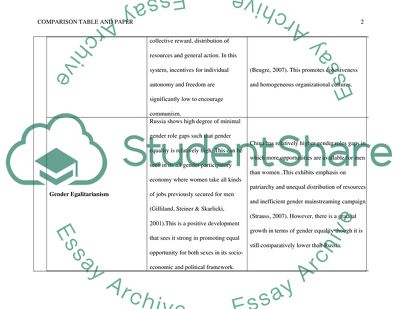Comparison Table and Paper Essay Example | Topics and Well Written Essays - 750 words. https://studentshare.org/human-resources/1848146-comparison-table-and-paper
Comparison Table and Paper Essay Example | Topics and Well Written Essays - 750 Words. https://studentshare.org/human-resources/1848146-comparison-table-and-paper.


